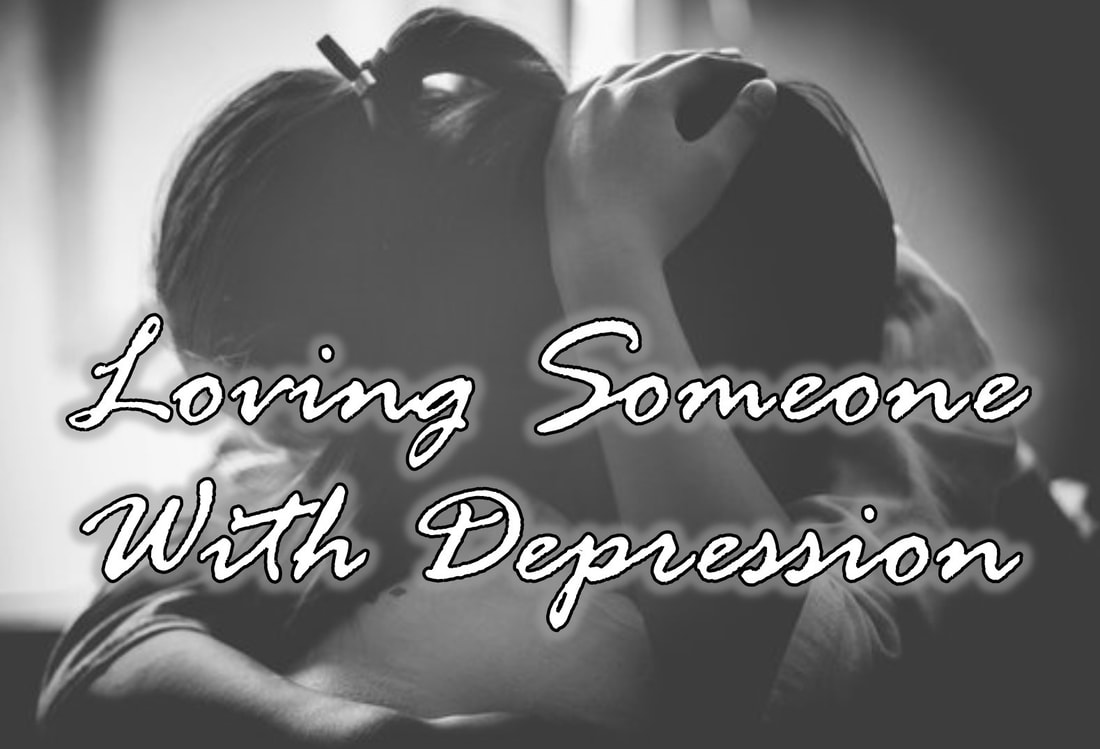|
There is so much advice out there for people who suffer from depression, but so little support for the loved ones of people with mental illness. This essay was written to help them. If someone you know is struggling, please have a read. I have turned this essay into a video, which you can see below. If you prefer reading to watching, the full essay is underneath the video. Depression is devastating. When someone is suffering from depression, their entire life is blown apart. It can be a massive struggle just to make it through each day. But they aren’t the only ones who struggle. The people who are often forgotten are the loved ones of a person with depression. No-one tells them how to cope. They don’t know what to do. I would like to try and offer some advice to those people. Knowing somebody you love is struggling with depression leaves you feeling helpless. You feel if you could say the right thing, or do something special, that maybe you will be able to help them to get better. But you don’t know what to say or what to do. You try a gentle approach, you try a firm approach. You give them space, you try to get them to open up. You suggest things that can help. You buy them presents. You say encouraging things, you get frustrated and argue. Yet nothing you do seems to make any difference. From my experience, the big mistake that people often make is that they treat depression as a mood, as if saying or doing the right thing will lift the depression. What you must remember is that depression is a very debilitating illness. Depression isn’t a mood; it’s cancer of the soul, and it eats away at the mind until all that remains is fear, anxiety and pain. If somebody had a broken leg, you wouldn’t tell them to go for a run. You would be patient, you would understand that it will take time, patience and rehabilitation. When the leg heals and you can walk again, it still can take weeks for it to regain full strength. It may never be as strong again. Depending on how bad the break was, it may alter how you walk, what exercise you can do, even how you stand. It may never be the same again. That is EXACTLY what depression is like. Just because you can’t see an injury doesn’t mean that it isn’t debilitating. I talked in my previous article about how, after my worst bout of depression, it took months before I felt I could do my job properly. Even now, two years on, I’m not the same as I was. I don’t do overtime. I don’t work night shifts. I don’t get left on my own for too long. There are countless other little things as well. This is because my depression completely changed my entire outlook on life, and it changed who I was as a person. When their loved ones are battling depression, when they are in that darkness, human nature is to try and ‘fix’ them. For a lot of people, this approach won’t work. Whilst there are things you can do, like giving the day a routine, and trying to find activities to keep the persons’ mind active, you are not going to be able to make someone “snap out of it”, it’s just impossible. Try to imagine that depression is like being in a dark tunnel. The person with depression can’t see a thing, because everything is surrounded by darkness. Every sound is amplified, every fear is magnified. All they want to do is get out of the tunnel, but they can’t see where to go, they don’t know what to do. Your natural reaction is to lead them out of this dark tunnel, back to the light. This is the WRONG approach. You may think it makes sense, but for the person with depression, nothing makes sense. That’s the nature of the illness. They can’t be led out of the tunnel, because the fear is too great, the darkness is too dark. Trying to drag them out of this tunnel is more likely to make them curl up and hide than do any good. For men, in particular, this approach can backfire greatly. Men, by their very nature, are trained not to talk about their issues. We have been told, since the moment we could understand, that ‘men’ don’t ask for help. It has been ingrained upon our very psyche that to show weakness or vulnerability is to go against everything that defines what a ‘man’ is. It doesn’t matter that those stereotypes are hopelessly wrong, and decades out of date. The instinctual reaction for a male is to insist they don’t need help, that they can manage by themselves. Indeed, any pressure on a man to open up, or to accept help, often backfires. Men revert into themselves, put up emotional barriers, and shut down. You can’t force anyone to open up at the best of times, and pressuring a man when he’s at his lowest ebb will create more problems than it solves. What you need to do is be there for them. If they talk, just listen. Don’t talk, don’t give them opinions. Just really listen. When I was at my worst, everybody I tried to talk to would give me an opinion on how I could ‘make things better’. The thing was, I wasn’t asking for an opinion. I just wanted to relay how I felt, and for the person to listen, give me a hug and reassure me that however long it took, they would stay in the darkness with me until I found my own way out. Yet no-one listened. They talked, and they advised, and they suggested, and they tried to help, but they didn’t LISTEN. That, more than anything, is what you need to do. Sit with them, let them talk. However upsetting or shocking what they say is, don’t give advice, just listen. When they finish, hug them, tell them you love them, and that however long it takes, you will be there until they find the strength to get better. You will never be able to lead someone out of the dark tunnel, all you can do is stay in the tunnel with them until they feel strong enough to lead themselves out. Yes, it’s hard. In many ways, hearing my loved ones tell me about their darkness was worse than living in my own. Yes, it’s often thankless. And yes, at times, you will feel rejected. But don’t give up on them. Support them, love them, and be there for them until they find the strength to get better. And most of all, when they talk, just listen. Originally published 19th September, 2012. Comments are closed.
|
"One of the most insightful works I've read on mental health problems in men ... very well-written and a real page-turner. I would recommend it to anyone.
⭐️⭐️⭐️⭐️⭐️" Dancing With Disorder
Hardcover: £19.99 Paperback: £12.99 Kindle: £2.99 "It communicates a deep understanding of troubled individuals who suffer from the challenges of mental disorders ... Courageous, wise, humorous and thought-provoking ... an easy-to-read, surprising and subtly moving chronicle.
⭐️⭐️⭐️⭐️⭐️" Follow Andrew Lawes on Social MediaDisorderly
|





